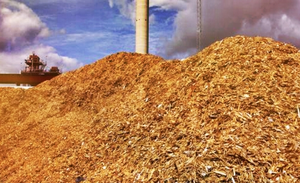
Mandi (Himachal Pradesh), Feb 19 (IANS) Researchers at the Indian Institute of Technology (IIT) Mandi have conducted a comprehensive study on the detrimental effects of indoor air pollution resulting from traditional cooking practices in rural kitchens across three northeastern states.
The study, in collaboration with Institut National de Recherche et de Securite (INRS), France, and the National Physical Laboratory (CSIR-NPL), India, analysed the extent and consequences of harmful emissions produced during indoor cooking using firewood and mixed biomass.
“Our study combines real-world aerosol measurements in rural kitchens with dosimetry modeling to robustly estimate the impact of cooking emissions on the respiratory tract,” said Dr. Sayantan Sarkar, Assistant Professor, School of Civil & Environmental Engineering, IIT-Mandi, in a statement.
“It is the first effort to estimate disease burdens caused by exposure to indoor cooking emissions in India in terms of potential years of life lost. The study also measures for the first time the potential for oxidative stress resulting from such exposure in the Indian context, and quantifies the additional risk that biomass users face compared to those who use the cleaner alternative LPG,” he added.
In a series of three papers, published in two journals – Science of the Total Environment and Environmental Pollution, the study showed that over 50 per cent of the rural population in Northeastern India (especially states like Assam, Arunachal Pradesh, and Meghalaya) continues to use traditional solid fuels such as firewood and mixed biomass for cooking, leading to the release of significant pollutants into the kitchen air.
The research aimed to gauge the severity and disease burden associated with the use of biomass cooking fuel compared to LPG-based cooking.
The researchers measured size-resolved concentrations of aerosols — particles suspended in the air, and toxic trace metals and carcinogenic organic substances bound with it, during cooking with firewood, mixed biomass, and Liquefied Petroleum Gas.
They modeled the deposition patterns of these particles and associated chemicals in various sections of the human respiratory system.
The resulting inhalation exposure to these chemicals during cooking was then calculated.
Utilising this data, the researchers estimated the health impact (disease burden) on the rural northeast India’s population, focusing on respiratory diseases such as Chronic Obstructive Pulmonary Disease (COPD), Pneumonia, and various cancers, using the ‘Potential Years of Life Lost’ (PYLL) metric.
This metric estimates the potential number of years lost in a population due to premature death from ill health.
The study revealed that exposure to harmful aerosols in firewood/biomass-using kitchens was 2-19 times higher than in LPG-using kitchens, with respiratory deposition ranging from 29 to 79 per cent of the total aerosol concentration.
The fraction of population using firewood and mixed biomass faced 2-57 times higher disease burdens than LPG users.
Furthermore, the research found that the potential for oxidative stress, which leads to damaged cells, proteins, and DNA, was likely to be 4-5 times higher among people using biomass in kitchens than those using LPG.
This stress is driven by the inhalation of metals and organic chemicals produced during indoor cooking using biomass fuel.
This research holds practical implications, emphasising the urgent need for rural communities in the northeast to make a transition to cleaner cooking methods.
Recommendations include making LPG more accessible, improving cookstove programmes, spreading awareness in rural areas, funding local solutions, and organising health camps for rural women.
–IANS
rvt/pgh
Disclaimer
The information contained in this website is for general information purposes only. The information is provided by TodayIndia.news and while we endeavour to keep the information up to date and correct, we make no representations or warranties of any kind, express or implied, about the completeness, accuracy, reliability, suitability or availability with respect to the website or the information, products, services, or related graphics contained on the website for any purpose. Any reliance you place on such information is therefore strictly at your own risk.
In no event will we be liable for any loss or damage including without limitation, indirect or consequential loss or damage, or any loss or damage whatsoever arising from loss of data or profits arising out of, or in connection with, the use of this website.
Through this website you are able to link to other websites which are not under the control of TodayIndia.news We have no control over the nature, content and availability of those sites. The inclusion of any links does not necessarily imply a recommendation or endorse the views expressed within them.
Every effort is made to keep the website up and running smoothly. However, TodayIndia.news takes no responsibility for, and will not be liable for, the website being temporarily unavailable due to technical issues beyond our control.
For any legal details or query please visit original source link given with news or click on Go to Source.
Our translation service aims to offer the most accurate translation possible and we rarely experience any issues with news post. However, as the translation is carried out by third part tool there is a possibility for error to cause the occasional inaccuracy. We therefore require you to accept this disclaimer before confirming any translation news with us.
If you are not willing to accept this disclaimer then we recommend reading news post in its original language.













